You can be more than nervous and worried when you keep getting 1-800-445-2620 pop-up showing on your browser and freezing your screen. As it warns you that "System has detected intrusion and root kits or some dll files are missing", urging you to take its advice and ring the number for tech support. It could be well annoying that this annoyance just won’t go away from your screen, along with a loud noise beeping "important security message" all the time.
Never take the points on 1-800-445-2620 virus alert
You may wonder how this 1-800-445-2620 alert harasses by repeatedly sending you fake virus warning, with which you fail to do anything normally. It seems that the only way out is to call this 800 line. In fact, this security pop-up is powered by certain adware or risky program, which is able to make changes on default settings of your browsers and inject malicious javascript code to run interference. Never leave 1-800-445-2620 technical scam the chance to linger. With such an ad generator sticking around, you are running a risk of getting more problems:
* It targets your browser and makes it malfunctioned.
* It displays endless ads to bombard you on most of web pages you visit.
* It tends to trick you into being a victim of tech support scam.
* It involves in delivering spam and helping remote attacker invade your system.
* It may bring in other malware causing high CPU usage or making your system vulnerable.
To turn you into a buyer of unwanted service or product, 1-800-445-2620 fake security alert causes distress and makes you behave irrationally. Do not be fooled by this phishing scam and you should take effective measure to drive it away.
Plan A: Clean up 1-800-445-2620 Alert Automatically with SpyHunter
Plan B: Remove 1-800-445-2620 Alert Manually
Plan A: Remove 1-800-445-2620 Alert Automatically with SpyHunter
SpyHunter by Enigma Software Group LLC is a spyware detection & removal tool providing rigorous protection against the latest threats including malware, trojans, rootkits & malicious software. It will not only update malware detection and removal definitions daily, but also offer you free technical support and custom fixes for hard-to-kill malware with limited interaction.
Step 1. Click the following icon to get malware removal tool SpyHunter
Step 2. Follow the on-screen instructions to install this security program on your computer.
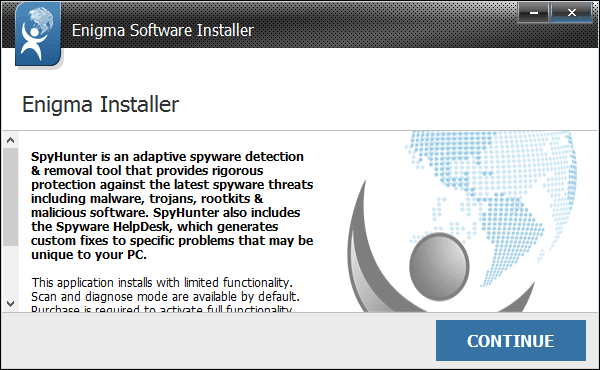
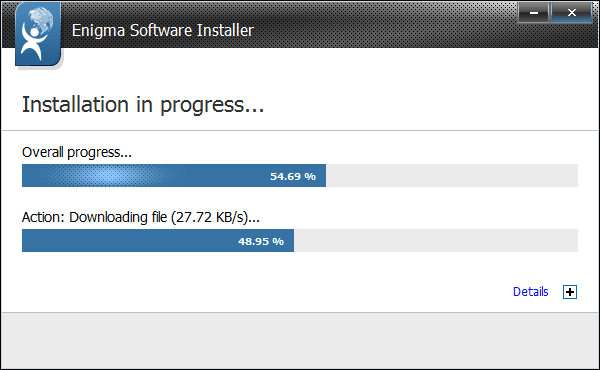
Step 3. Run SpyHunter and select ‘Start New Scan’ option on the interface. SpyHunter will scan for any suspicious or malicious threats on your machine. It might take some time to complete the process, please be patient.
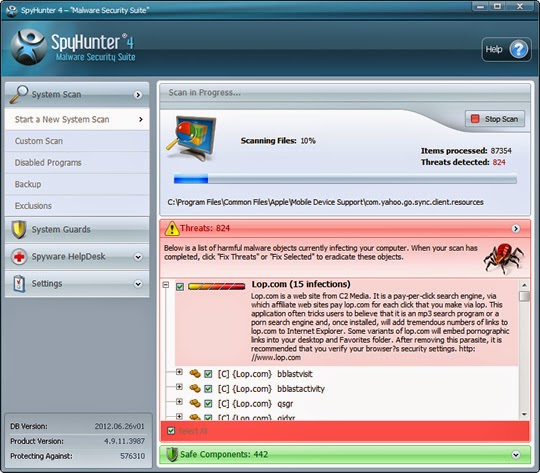
Step 4. After scanning, click the built-in "Fix Threats" button to automate the whole removal process and get rid of all detected items.

Plan B: Remove 1-800-445-2620 Fake Alert Manually
Step 1. End malicious processes generated by this scam Ad
Press key combination (Ctrl+Alt+Del) to launch Task Manager
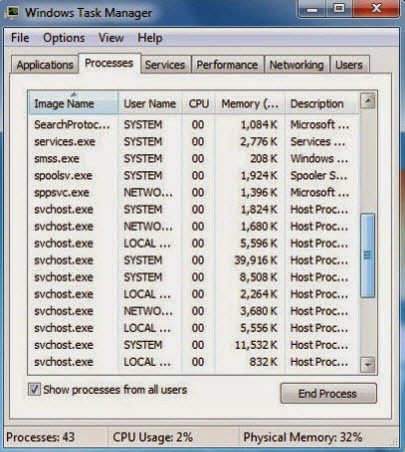
Step 2. Uninstall unwanted program that bundled with this Ad
Win 7: Go to the “Start” menu, select “Control Panel”. Locate “Programs”. If there is anything related to this scam pop-up on the list of your Programs, then select it and uninstall it.
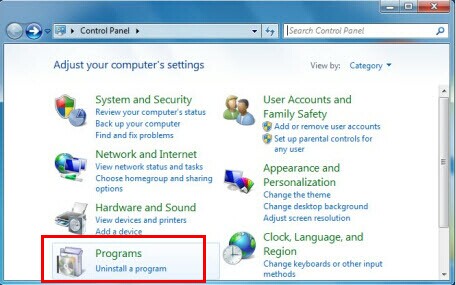
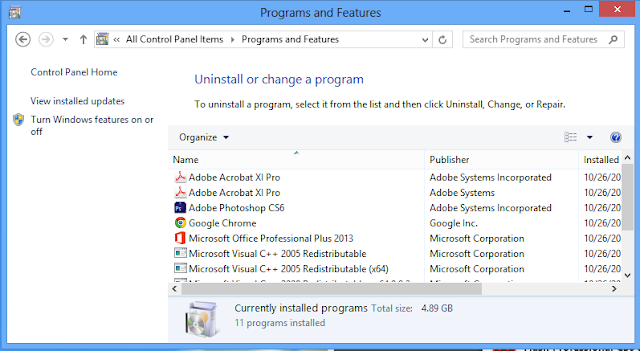
Win 10: Go to the “Start” menu, select “Settings” and then “System”; Click on “Apps & features”, if there is pop-up Ads related item, select and uninstall it.
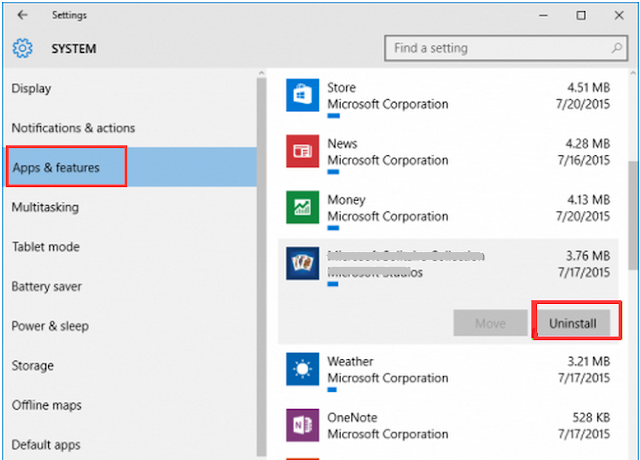
Step 3. Reset your affected browsers one by one
Google Chrome:
Click the Chrome menu on the browser toolbar and select Settings:
a) Scroll down to the bottom of chrome://settings/ page and click Show advanced settings
b) Scroll down to the bottom once again and click Reset Settings

Internet Explorer:
a) Click Start, click Run, in the opened window type "inetcpl.cpl".
b) Click "Advanced" tab, then click Reset.

Mozilla FireFox:
Open Firefox->> choose Help ->>choose Troubleshooting information
a) Click on Reset Firefox. Choose Reset Firefox again to make sure that you want to reset the browser to its initial state.
b) Click Finish button when you get the Import Complete window.
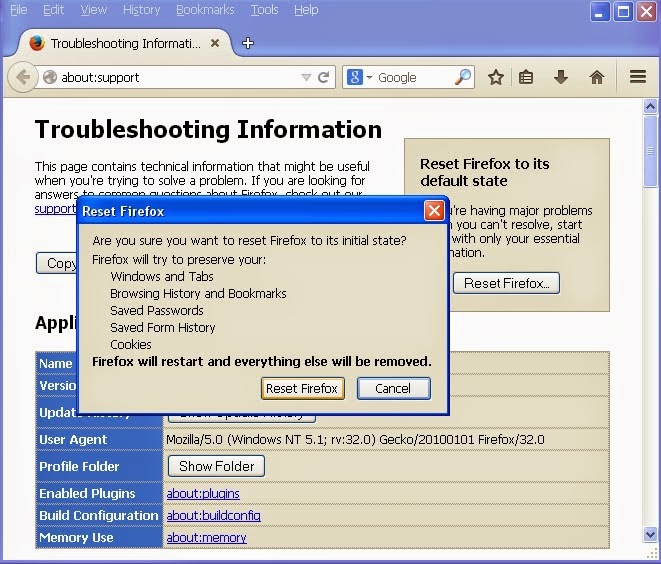
Step 4. Find out and delete associated files
%ProgramData%\*. %CommonProgramFiles%\ComObjects*.exe %windir%\SeviceProfiles\LocalService\AppData\Local\Temp\random.tlb
Specially Remind:
Anything taking a hand in your browsing and messing up things like 1 (800) 445-2620 tech support scam should be eliminated in a timely fashion. If you are puzzled by the manual removal steps, you could feel free to get security tool – SpyHunter to help you abbreviate the problem.


No comments:
Post a Comment